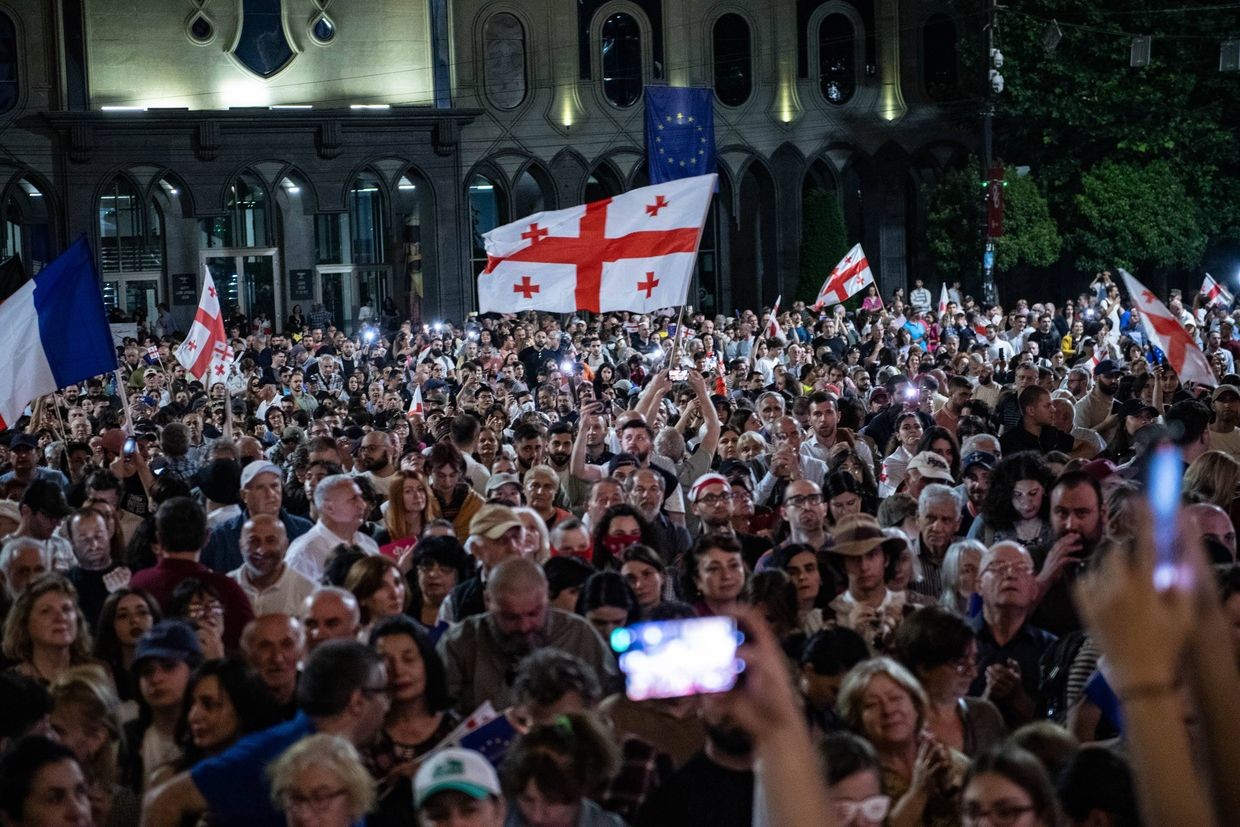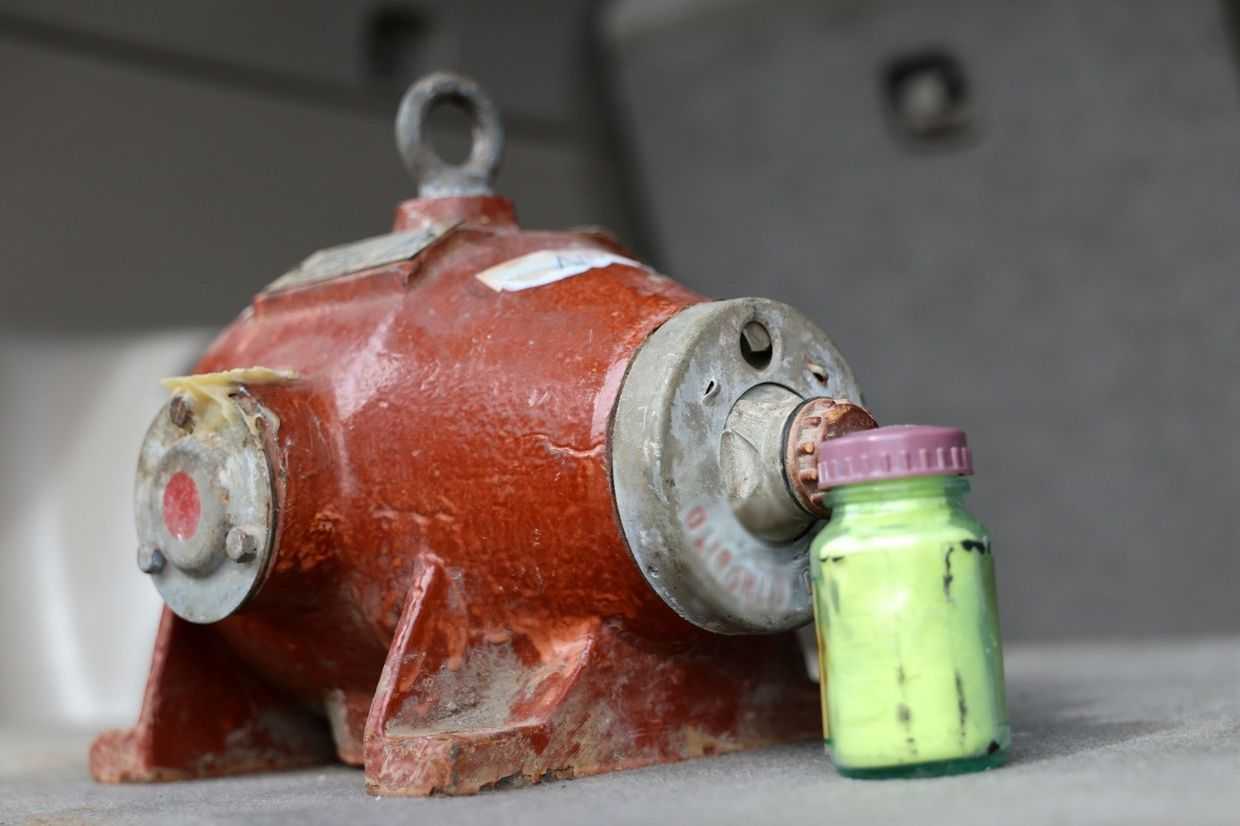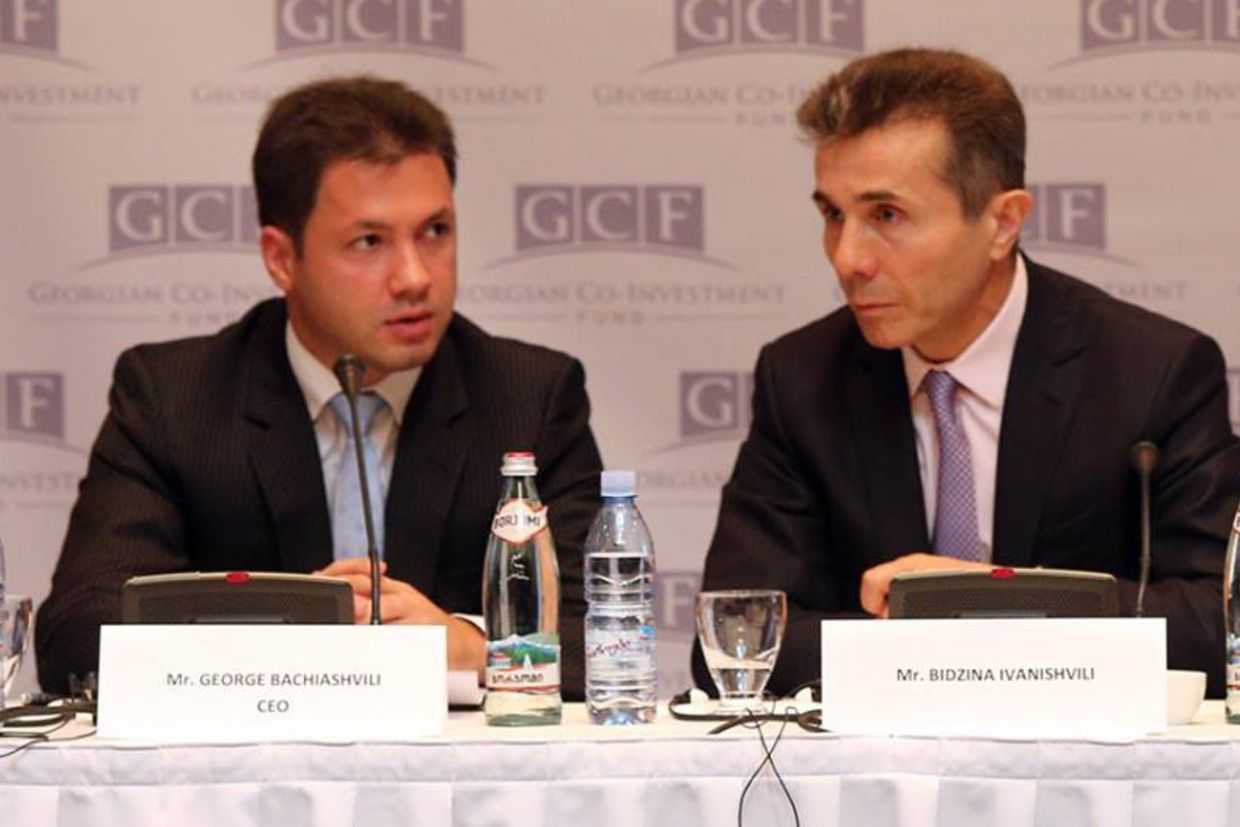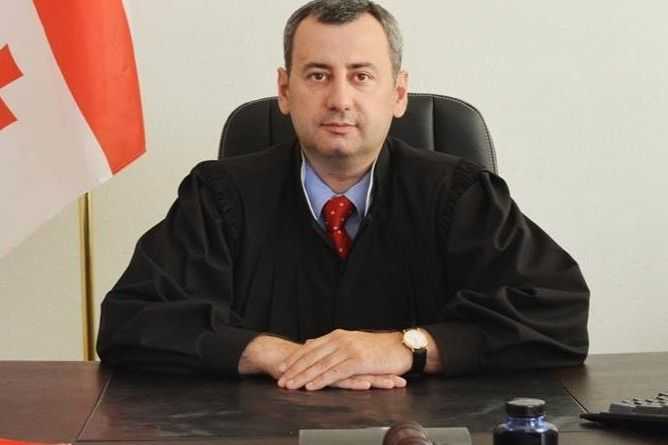
In Tbilisi, alongside government-organised events, pro-European activists held marches to commemorate Georgia’s Independence Day on 26 May. Later that day, another rally took place outside parliament, where Georgia’s fifth president Salome Zourabichvili and Lithuanian MEP Rasa Juknevičienė made speeches.
At the start of the day, a state-organised event took place in Tbilisi’s central Freedom Square, featuring the traditional oath-taking ceremony for military conscripts. The event was attended by representatives of the Georgian government, including Prime Minister Irakli Kobakhidze and Defence Minister Irakli Chikovani, as well as Parliamentary Speaker Shalva Papuashvili, all of whom addressed the crowd.
Kobakhidze stated that ‘over the past two centuries, Georgia has never been as independent as it is today’, echoing the frequently repeated Georgian Dream message about the unprecedented sovereignty achieved during its rule.
‘Georgia’s independence and uniqueness are supreme values, without which nothing else has worth’, he added, noting that Georgia continues on ‘Moses’ path toward the promised land’, a metaphor Kobakhidze used for economic prosperity and the restoration of the country’s territorial integrity.
At the conclusion of the event, aircraft from the Air Defence and Aviation Command flew over the capital.

According to the Defence Ministry, military-themed events were also held in 20 other cities across Georgia, where military equipment was displayed on city streets.
Protesters organised their own events
Beyond the military events, the state also organised educational and entertainment activities in Tbilisi and elsewhere across Georgia. Unlike in previous years, however, the government held virtually no events on Rustaveli Avenue, the capital’s main thoroughfare, where the Georgian Parliament is located and which has been the epicentre of anti-government protests for over 180 days, following Georgian Dream’s EU U-turn.
Instead, official events were largely focused on neighbouring streets, while the main avenue was occupied by citizens and organisations staging marches and other activities as part of the ongoing protest.
The atmosphere was largely festive, with theatrical elements, including women marching in the uniforms of the sports society that was active during the short-lived First Democratic Republic of Georgia from 1918 to 1921 before the Soviet invasion and subsequent annexation. On Rustaveli Avenue, a group of citizens also performed the anthem of the First Republic and publicly read out the Act of Independence that declared the republic’s independence on 26 May 1918.

In addition, protest marches were held from various points across Tbilisi towards the main avenue, along with a book fair, public lectures, exhibitions, and stands, including a support and advocacy area dedicated to Mzia Amaghlobeli, the detained manager and co-founder of the Batumelebi and Netgazeti media outlets.
At the end of the day, another pro-European protest rally was held outside parliament. This demonstration was larger than recent ones, which have seen a notable decline in turnout.
Speaking at the rally, Zourabichvili highlighted three elements that she said were necessary to ‘bring victory to completion’: unity within Georgian society, support from Western partners, and the creation of a political alternative.
‘The only tool and goal of Georgian Dream, which is incapable of anything else, is to sow division between society and political parties, between different segments’, she said, adding,‘We must not allow this’.
She also addressed the Georgian army — stating her conviction that they are pained by the fate of present-day Georgia and the disappearance of its statehood — and the Georgian police, saying that among them are those who are pained by the fact that they cannot — or are not allowed to — fulfill their primary duty: protecting citizens.

In addition to Zourabichvili, Juknevičienė, one of Georgian Dream’s most vocal critics in the European Parliament, also spoke at the rally after travelling to Tbilisi for Independence Day.
‘Sakartvelo, your fight is our common fight. This is the same fight, the fight for Europe; the fight against the same colonial Russian Empire’, she said.
She also expressed solidarity with Amaghlobeli, as well as with Zurab Japaridze, the leader of Girchi — More Freedom, who was detained last week, and with former President Mikheil Saakashvili, who remains imprisoned. Juknevičienė called on the ‘collaborators’ of Georgian Dream’s founder, Bidzina Ivanishvili, not to fear ‘new and fair elections’.
‘Let the people of Georgia say what they want’, the MEP stated.
During the rally, a video collage was shown on screen, featuring foreign politicians congratulating Georgian citizens on Independence Day. Among them were Moldovan President Maia Sandu, US Representative Joe Wilson, MEP Manfred Weber, and Italian MP Deborah Bergamini.

On Independence Day, three European leaders — French President Emmanuel Macron, German Chancellor Friedrich Merz, and Polish Prime Minister Donald Tusk — also issued a joint address to the Georgian people, condemning the Georgian government’s crackdown on dissent.
In response, the ruling party criticised the statement as a ‘shameful attack on the Georgian people and the Georgian state’.
https://oc-media.org/macron-merz-and-tusk-condemn-georgian-government-in-independence-day-address/









